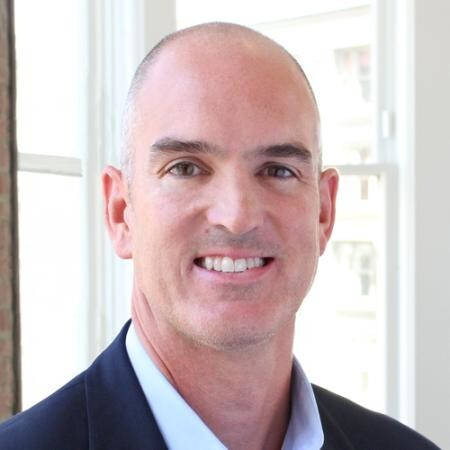

For the recently appointed CEO of Embroker, avoiding failure must be all about sustainable growth and sticking to the mission while others potentially fall “to the wayside”.
“We don’t want to be in a position where a customer engages us one day, and we’re gone the next day,” Ben Jennings (pictured below), Embroker CEO, told Insurance Business. “That is not our goal, we’ve seen plenty of folks, unfortunately, fall by the wayside by sheer lack of focus, and we’re not going to fall into that trap.”
Up to a third of insurtechs that existed between a 2018 and 2021 sweet spot that saw investors flock into the arena and drive “hugely inflated valuations” no longer trade as businesses today, Gallagher Re estimated in its Q2 2023 Global Insurtech Report.
Nine-year-old Embroker, which provides commercial insurances for businesses in a range of verticals ranging in size from seed to pre-initial public offering (IPO), itself most recently raised $100 million in a series C round in 2021, in a round led by FTV Capital.
Jennings pointed out that startup failures are not unique to insurance.

Photo: Business Wire
One oft touted stat is that nine out of 10 will fail, while Failory has suggested, based on Bureau of Labor figures, that new businesses have a 70% failure rate into their 10th year.
“You see companies that have struggled through COVID, you see companies that have been, unfortunately, subjected to things outside of their control – the impacts of the banking crisis, the impacts of a challenging funding market, things like that,” Jennings said. “Startups start and fail; it is what it is, we wish everyone all of the best, but some people are going to fall by the wayside.”
For Jennings and San Francisco-headquartered Embroker, setting the business up for success means investing in technology and products that are expected to drive “stable, predictable growth”.
Jennings was named Embroker CEO in July 2023, taking over from founder Matt Miller who stepped down for health reasons in January and remains on the company’s board. Previously, Jennings served as Embroker chief revenue officer for four years and prior to this spent approaching 30 years in enterprise B2B technology.
“My main focus has been focus,” Jennings said of his first months in the top job.
The CEO has aimed for a strong element of continuity, with Embroker looking to its “simple” original value proposition, which Jennings described as recognition that the insurance industry has not made it easy for average business consumers to purchase insurance.
“If anything, we are getting very specific around our products that we’re launching and our technology that we are continuing to iterate on and deploy on behalf of our customers,” Jennings said. “And so it has been probably my tone in leading the company [that has been] slightly different – our focus is more precise, but the mission and the vision that we’ve always had is still consistent with [that of] our founders.”
Hitting this focus goal has meant shelving some “great ideas” that may not have dovetailed with the original ambition, according to Jennings.
“[This has included] lots of great products, particularly a really amazing insurance product that didn’t really consistently fit with our core vertical strategy,” Jennings said. “Our goal is to be the single destination for vertically specific business buyers to come and get everything that they need.
“Knowing that what they’re being presented is what is best practice for them to have to cover their risk profile, and that the sources of those policies are best suited for their bespoke needs, that is really the goal.
“When you have projects that are not necessarily aligned to that vision, great opportunities, amazing ideas, but that don’t necessarily orient specifically around the very distinct needs of vertically specific buyers, you have to make decisions on what you want to do with them.”
The business, which sells direct and has a wholesale and retail offering, launched ONE by Embroker in January.
The application is intended as a one-stop-platform for a business’s policies, resources, and access to insurance experts.
“That really is where it all starts,” Jennings said. “If you ask a small business owner how they feel about insurance, if they don’t slap you, they will basically think of it as a business tax, right? It’s not core to their business, it’s not something that they want to spend a lot of time on and it is expensive.
“The combination of those things makes it an unattractive topic, and then you compound that with it being a relatively painful process to actually source your insurance cover – that’s a tough thing.”
ONE by Embroker, then, is intended to make the process less frustrating for insurance buyers, though Jennings also sees benefits for agents.
“If I’m a retail broker, I’m able to cover more ground, become a subject matter expert, get back to my customer with something that they can make a decision on much more quickly than the competition,” Jennings said. “And so it’s a huge advantage to both wholesale and retail.”
There remains a “disparity” in how agents and brokers are engaging with technology, but this is a phenomenon being seen across industries, according to Jennings.
Recent startup founders and entrepreneurs “grew up in the cloud, they grew up online,” Jennings said, as he pointed out that these individuals are pushing for a digital experience.
“That generation is not going to tolerate not having a technical solution,” Jennings said. “That’s what we’re trying to move towards, and I think folks in the traditional insurance space have a recognition that technology is common, and the insurance industry is very unique in the sense that it has so much rich data and history that can be leveraged by machine learning and AI and other functional technologies.
“If you just marry the two together, you can have something really special.”
What are your thoughts on the future of insurtech and Embroker CEO Ben Jennings’ words of “wayside” caution and sustainability focus? Let us know in the comments.
